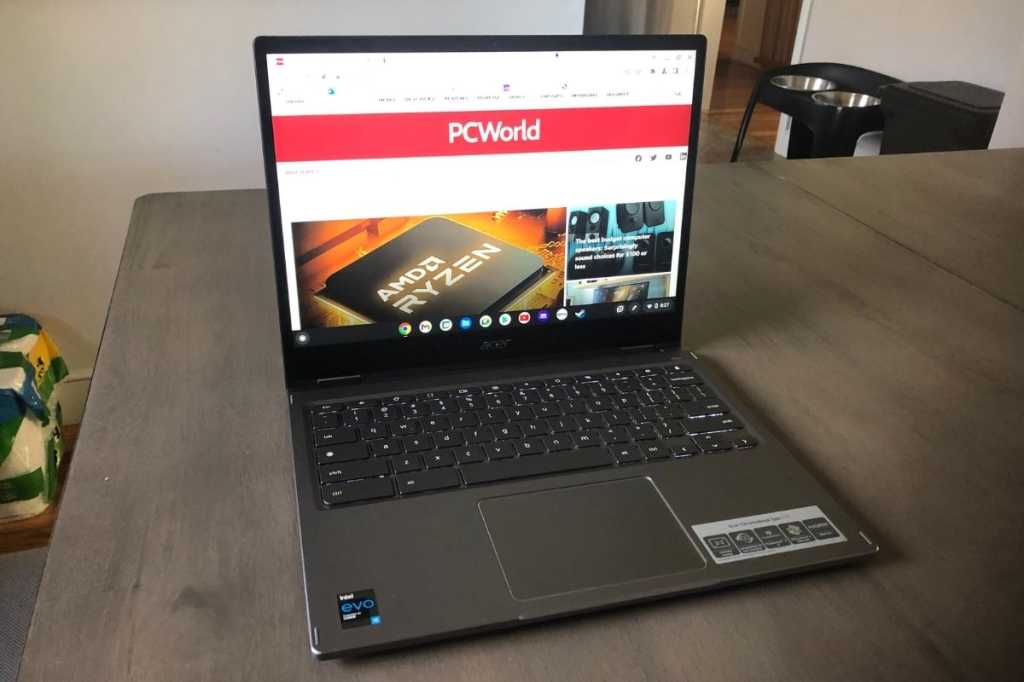Tech News
Best laptops under $500: Best overall, best OLED laptop, and more
With laptops under $500 you will most likely need to make compromises. So it’s important to be smart about your shopping. However, believe it or not, there are some advantages to less-expensive laptops—their low-powered processors mean you can expect good battery life and Chromebooks are often less vulnerable to malware.
Within this budget range, you’ll typically find Windows machines with Intel Core i3 or i5 processors or entry-level Chromebooks. We have tested numerous inexpensive laptops and each one has its pros and cons, but those that stood out are included in this list. In addition to standard clamshell designs, you’ll also find that we’ve included a tablet with a detachable keyboard and a convertible with a gorgeous OLED display.
If you’re able to stretch your budget a bit more, check out our best laptops roundup for suggestions. Or see our roundups of the best Chromebooks or best gaming laptops for more picks in those particular catagories.
It’s also back-to-school time and that means now is a great time to take advantage of killer deals and get even more value for your money. We will be highlighting all of the best sales we find in our back-to-school deals.
Updated 08/10/2022 Be sure to check out our latest review of the Dell XPS 13 Plus. It’s a sleek 13-inch laptop featuring serious performance and a beautiful OLED screen. It’s a great option for everyone, especially business professionals and designers.
We also have a review of the new Dell Latitude 7330. This ultra-portable is designed with simplicity and productivity in mind and weighs a super-light 2.13 pounds.
Acer Aspire 5 – Best sub-$500 laptop overall
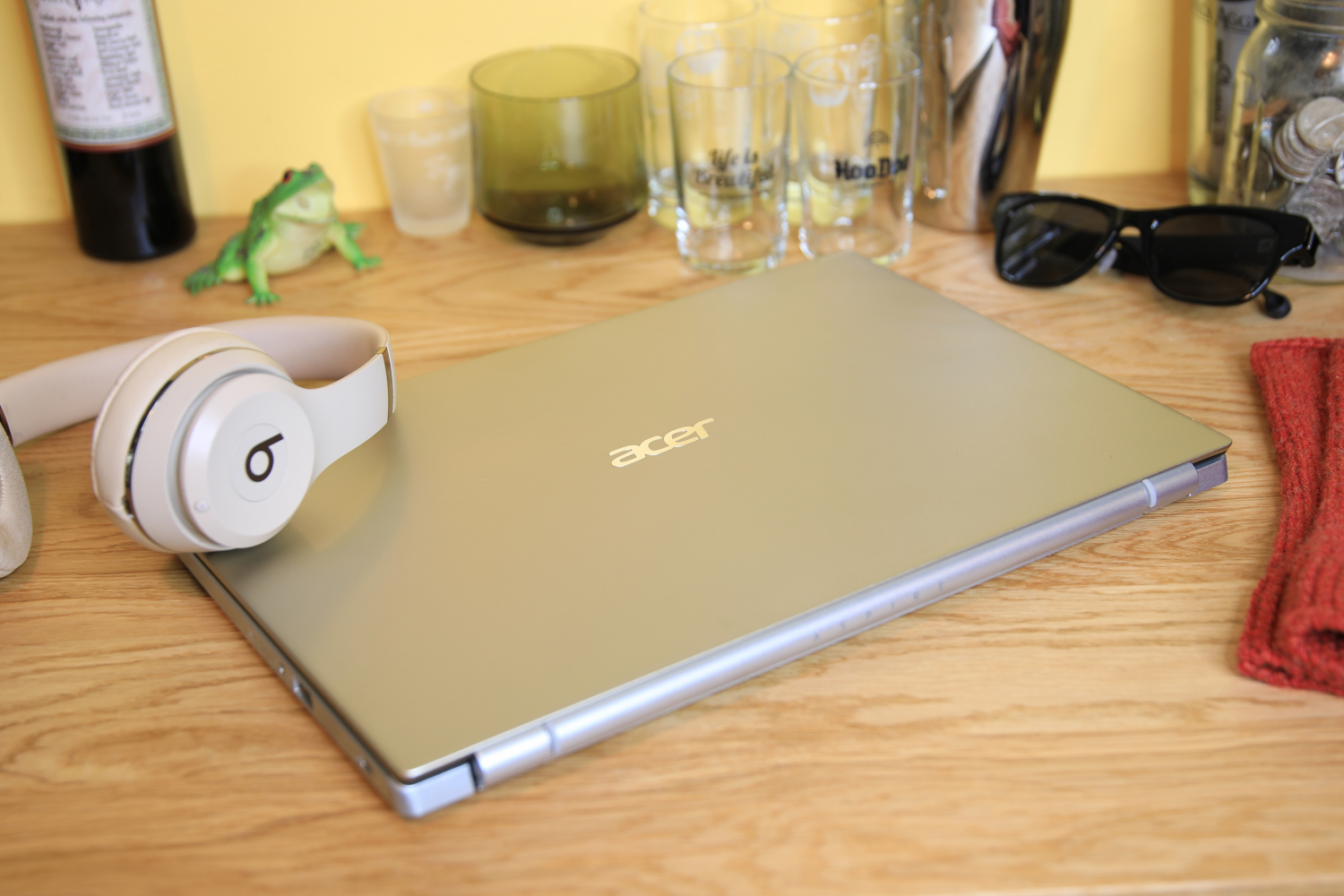
Pros
- Affordable price
- Rugged build
- Great keyboard
- Good selection of ports
Cons
- Subpar webcam
- Annoying bloatware comes pre-installed
- Touchpad is a little hard to use
With its affordable price point, decent performance, and robust build, the Acer Aspire 5 is an excellent sub-$500 option. The Intel Core i5 processor keeps things relatively zippy, and performance is fast enough for general-use tasks like writing emails and browsing the web.
The 14-inch LCD 1080p display is reasonably sharp and vibrant, which is great for working on documents or streaming video. This machine also comes with 8GB of RAM, which is plenty for quickly firing up applications. The keyboard is rather nice, too.
In our review, the tester was pleasantly surprised by the keyboard’s “durable feel.” It has a spacious layout, which is perfect for longer typing sessions. Although the keyboard lacks backlighting (not surprising given the price) and the touchpad is a bit difficult to use, we feel the pros far outweigh the cons here.
If you’re shopping around for a solid everyday laptop that won’t break the bank, the Aspire 5 is definitely worth a look.
Read our full
Acer Aspire 5 review
Lenovo Chromebook Flex 5 – Best sub-$500 Chromebook
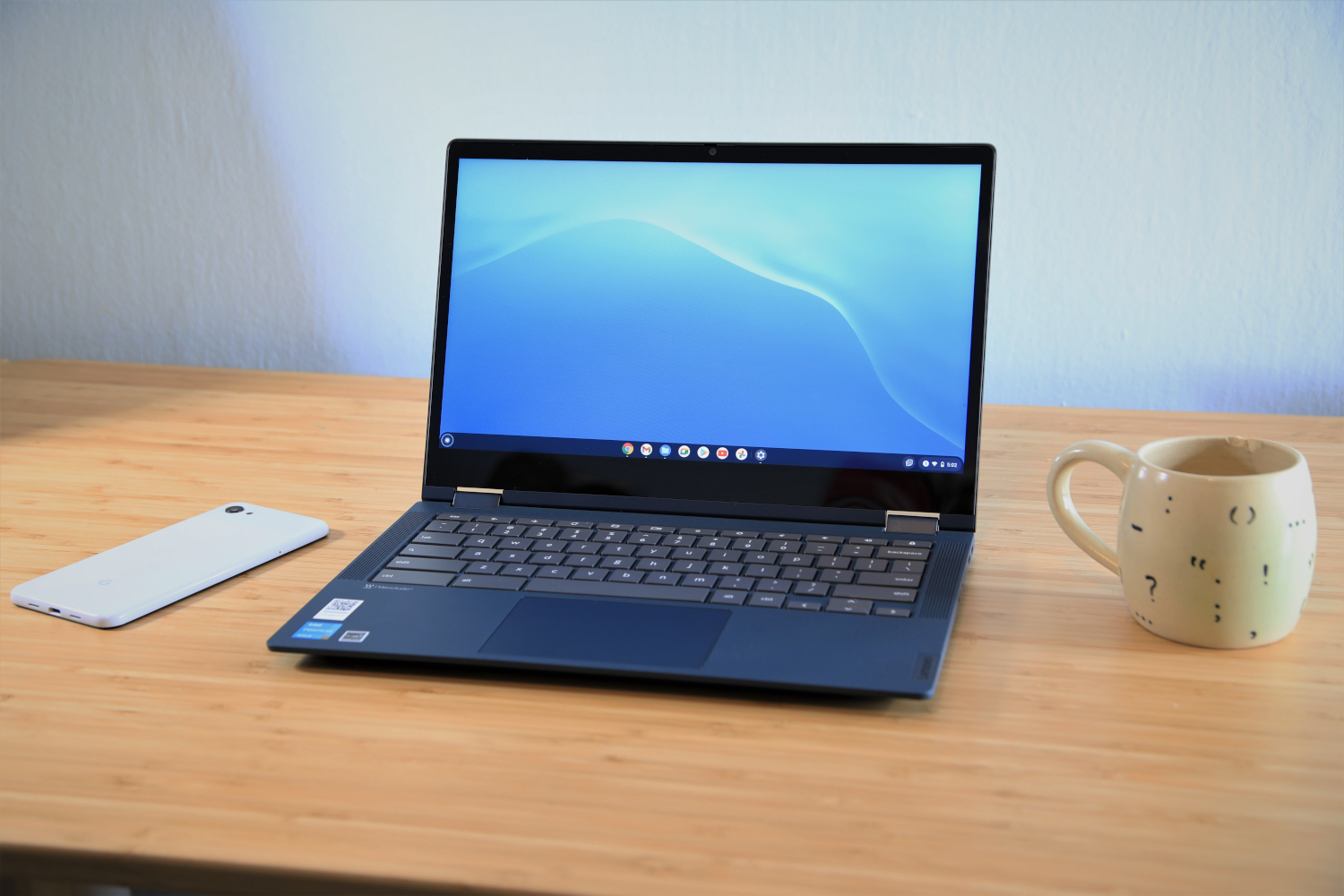
Pros
- Attractive design
- Affordable
- Punchy audio
- Excellent keyboard
Cons
- Mediocre performance
- Subpar battery life
Between its reasonable price and superb keyboard, the Lenovo Chromebook Flex 5 is nice all-arounder. Thanks to the Intel Pentium Gold 7505 processor, this Chromebook is equipped to handle web browsing, editing documents, and other simple tasks. However, according to our review, it can “feel taxed by demanding tasks.” For example when the tester opened up multiple tabs, he noticed some lag in performance.
The port selection is a nice combination of old and new: It has two USB-C ports, a single USB-A port, a 3.5mm combo audio jack, and a microSD card reader. The 13.3-inch 1080p IPS touchscreen is a big perk at this price point, too.
Regarding the keyboard, our tester liked the “crisp and taut” feel of the keys. It’s fairly comfortable, making it suitable for marathon typing sessions. Although this laptop is a 2-in-1—meaning the screen can fold back to make it function more like a tablet—it weighs just about 3 pounds, which is on the heavier side for a convertible.
It may not be the most portable laptop in the world, but that flexibility can still be nice for applications that favor a tablet form factor. Overall, the Flex 5 has a lot going for it.
Read our full
Lenovo Chromebook Flex 5 review
HP Chromebook x2 11 da0023dx – Best folio-style Chromebook
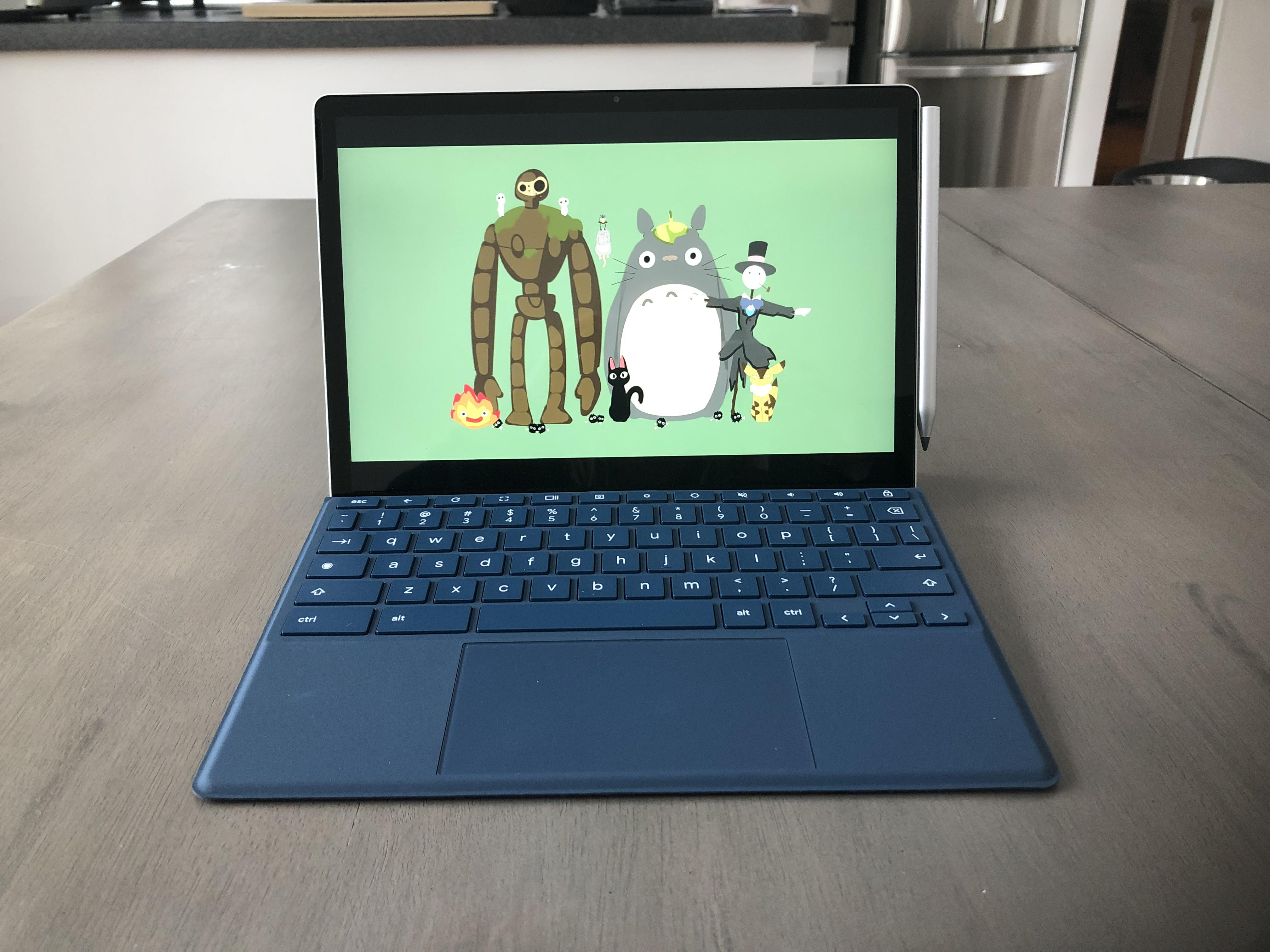
Pros
- Gorgeous 2K touchscreen
- Solid performance
- Excellent battery life
- Robust design
Cons
- Trackpad is too sensitive at times
- Light on ports
Yes, another Chromebook—but the HP Chromebook x2 11 is one of the best 2-in-1 machines you can buy, considering its cheap price. While some may find the detachable-keyboard design a pain to deal with, our reviewer really liked this one. The tablet’s aluminum chassis feels rugged and like it’ll last quite a while. The detachable keyboard took some getting used to, but ended up being fine for long typing sessions.
The rear plate, which transforms into a kickstand that holds up the tablet for hands-free use, connects to the back of the tablet via magnets. The reviewer found the connection to be both clean and strong. As for the performance, it’s about what you’d expect out of a Chromebook: zippy enough for everyday tasks like browsing the web and so on.
The x2 11 is powered by a Snapdragon 7c processor, which is better than the MediaTek chips you’ll find in most Chromebooks. That said, the Intel Core i3 in Windows machines is simply more powerful by default. This HP also packs 8GB of RAM, which helps with web browser performance, among other tasks.
The 11-inch 1440p touchscreen is on the smaller side, but that just means it’s lighter and more portable than bigger display options. Plus, the 1440p resolution is truly beautiful. According to the tester, colors were rich and shadows were quite dark.
Read our full
HP Chromebook x2 11 review
Lenovo IdeaPad Chromebook Duet 5 – Best sub-$500 Chromebook for OLED fans
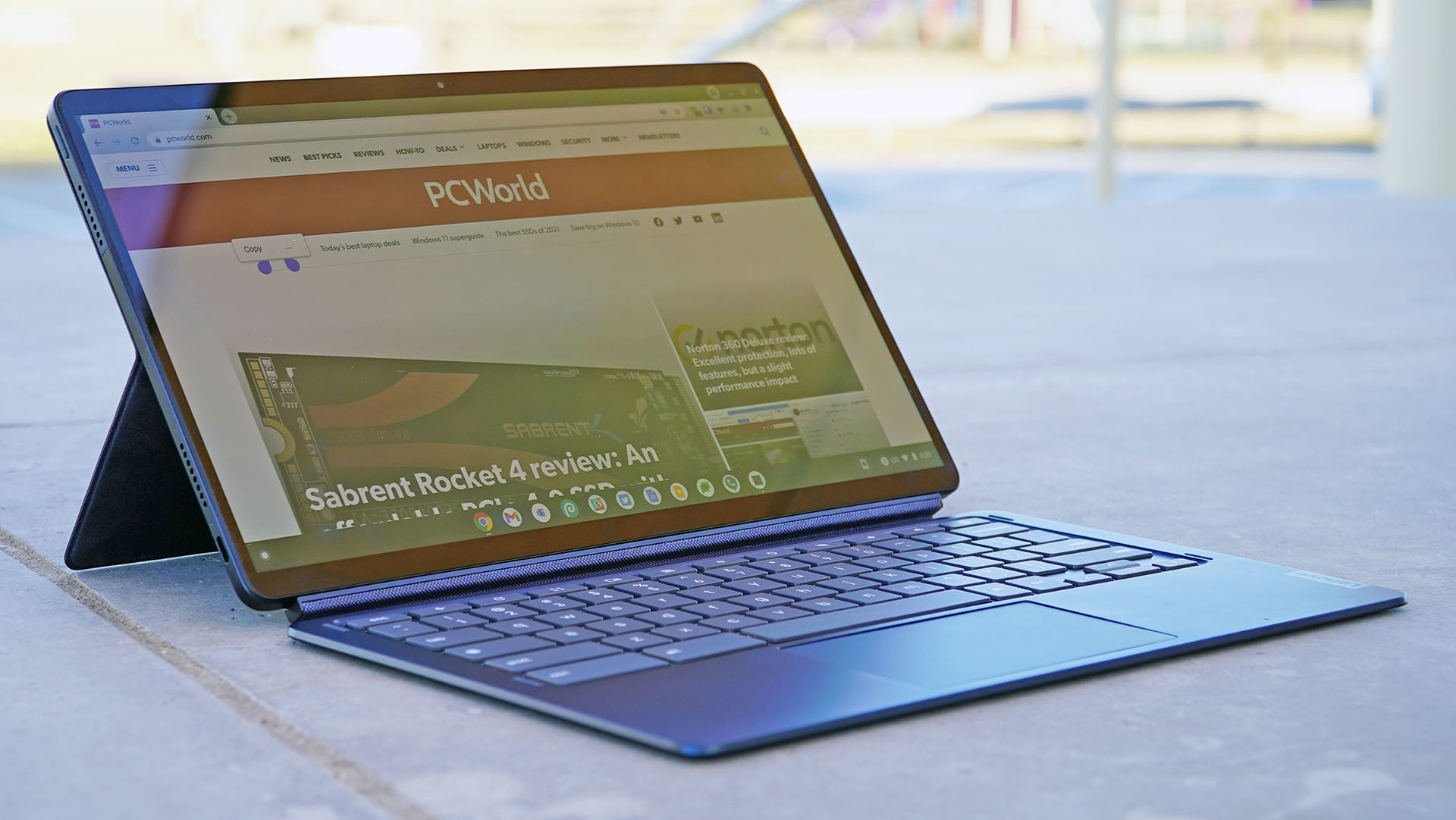
Pros
- Gorgeous screen
- Amazing battery life
- Good price
Cons
- Awkward aspect ratio
- No fingerprint or face scanning
The Lenovo IdeaPad Chromebook Duet 5, a Chrome OS tablet that doubles as a laptop, has a solid keyboard and drop-dead gorgeous 1080p OLED display that produces colorful images. Although the screen’s 16:9 aspect ratio might feel awkward for some, it would be perfect for watching movies.
Lenovo’s keys have a decent travel distance of 1.3mm and the detachable keyboard as a whole doesn’t feel too cramped. There’s also a kickstand that can be adjusted up to 135 degrees. The one tradeoff is that the USI-compatible pen costs extra.
Let’s take a peek under the hood. For starters, this Chromebook is armed with a Snapdragon SC7180 processor. Again, it’s more powerful than the MediaTek chips. When it comes to opening up applications and web pages, the 8GB of memory offers a nice boost in speed.
There’s 128GB of storage, but that’s not majorly important, as you’ll store most things in the cloud. But the star of the show here is the 1080p OLED panel, which makes every little pixel really pop. If you’re after a gorgeous OLED screen with amazing contrast and color, the Duet 5 will hit the spot.
Read our full
Lenovo IdeaPad Chromebook Duet 5 review
How we tested
The PCWorld team puts each and every Windows laptop through a series of benchmarks that test GPU and CPU performance, battery life, and so on. The idea is to push the laptop to its limits and then compare it against others we’ve tested.
Chromebooks, on the other hand, go through a series of web-based tests. It wouldn’t be fair or possible to run the same kinds of tests on a Chromebook, as they’re Chrome OS-based machines. Below, you’ll find a breakdown of each test and the reasons why we run them.
Windows laptops
- PCMark 10: PCMark 10 is how we determine how well the laptop handles lighter tasks like web browsing, word processing, spreadsheets, and so on.
- HandBrake: HandBrake is more intensive than PCMark 10. It basically measures how long a laptop’s CPU takes to encode a beefy 30GB file.
- Cinebench: Cinebench is a brief stress test of the CPU cores. It does this by rendering a 2D scene over a short period of time.
- 3DMark: 3DMark checks if 3D performance remains consistent over time by running graphic-intensive clips.
- Video rundown test: To gauge battery life, we loop a 4K video using Windows 10’s Movies & TV app until the laptop dies.
Chromebooks
- CrXPRT 2: The CrXPRT 2 benchmark tests a Chromebook’s battery life.
- Speedometer 2.0: This test determines a Chromebook’s web browser performance. It simulates this by adding, completing, and removing a to-do list.
- Basemark Web 3.0: This benchmark gauges how well a Chromebook can handle web-based applications.
- Kraken 1.1: Kraken 1.1 is a JavaScript performance benchmark.
- Jetstream 2: Jetstream 2 is a combination of WebAssembly and JavaScript benchmarks. This is a way to gauge how well a Chromebook runs advanced workloads.
What kind of laptop should you get?
Ah, here we are at the billion dollar question. Do you spring for a basic Chromebook or go for a Windows laptop with more features? Well, it really depends on your lifestyle and your expectations of a sub-$500 machine. At this price point, you’re not going to find a powerful workhorse. However, there are plenty of affordable laptops out there for those who need the basics.
Chromebooks, for example, are a great low-cost option and offer phenomenal battery life. I use a Chromebook as my primary work laptop, as it has everything I need for both editing and writing. If you travel for work, it’s probably a good idea to invest in a laptop that weighs less than three pounds. If you’re still unsure, don’t sweat it. I’ve put together a list of quick buying tips below.
- Laptop type: There are many different laptop types that fall in the sub-$500 category: clamshells, 2-in-1’s, Chromebooks, and much more. The displays on convertible laptops (aka 2-in-1’s), for example, can swing around 360 degrees. This allows you to use the laptop like a tablet. They can also be propped up like a tent for viewing movies or participating in video calls. Chromebooks come in various shapes and sizes, and exclusively run Google’s web-focused Chrome OS. With a Chromebook, all you need is a Gmail account and, boom, you’re in.
- CPU: When it comes to the sub-$500 Windows laptops, you can expect to find Intel Core i3 or i5 processors. An i5 processor obviously provides a little more oomph. That said, basic office and web work does just fine on a Core i3. As for AMD options, the Ryzen 3 is good for basic productivity and web browsing, while Ryzen 5 chips rival Intel’s Core i5 as solid all-arounders. For Chromebooks, Snapdragon and Pentium processors are more powerful than MediaTek chips.
- Graphics: At this price range, you probably won’t find a laptop with a powerful discrete graphics card. Instead, you’ll encounter laptops with integrated graphics, which are integrated with the CPU and use less power as a result. This is perfectly fine for everyday tasks, especially if you’re not doing anything that’s graphics-intensive—like 3D gaming.
- RAM: Always go for 8GB of RAM. That’s plenty enough for firing up applications and loading web pages. Most Chromebooks are equipped with 4GB of RAM, which is the bare minimum. You need a decent amount of memory on these machines, as they’re primarily web-based. If there’s an 8GB RAM option, I’d recommend springing for that.
- Display size: If you’re a video editor or someone who does a lot of multimedia work, you’ll want a display that’s anywhere from 15- to 17-inches (but these machines usually cost far more than $500). The sweet spot for budget laptops is really anywhere from 13- to 14-inches. The bigger the display, the heavier your laptop is going to be. A 13- or 14-inch display is the best in terms of portability and value.
- Resolution: I wouldn’t go for anything less than 1080p, as there’s nothing more annoying than a slightly fuzzy image. 1080p produces a picture that’s sharp enough for watching Netflix or working in Excel. At this price range, you won’t really find many (if any) laptops with 1440p resolution or higher.
- Battery life: If you plan on taking your laptop anywhere with you, aim for something that can last 10 to 12 hours on a single charge. That’s more than a full work day, so it should theoretically get you through long flights or a day of classes. Obviously, more is always better. Just know that the bigger the battery, the heavier the laptop.
- Price: The price really depends on your budget. If you’re strapped for cash (been there, trust me), go for a Chromebook or an entry-level business laptop. These laptops are a good choice for students or young professionals. If you shop smart, you can even find 2-in-1’s in the $500 range.
- Ports: A wide array of ports is always a plus, as it eliminates the need for an adapter. I’d recommend a laptop that has both USB-C and USB-A. An HDMI port is good, too. This is especially useful for hooking up to an external monitor.
Source link
